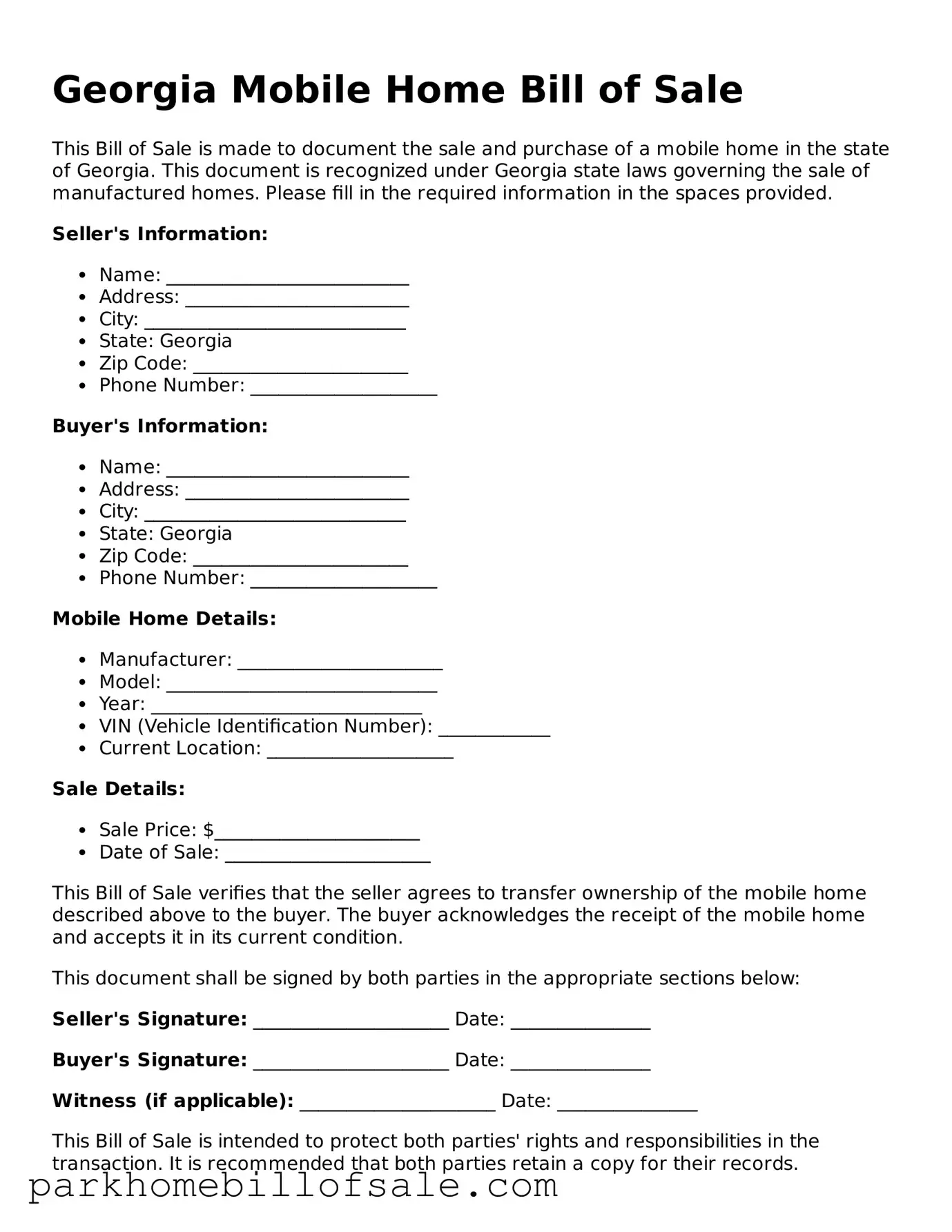Documents used along the form
When buying or selling a mobile home in Georgia, several documents may accompany the Mobile Home Bill of Sale. These documents help ensure that the transaction is clear and legally binding. Below is a list of common forms and documents used in conjunction with the Mobile Home Bill of Sale.
- Title Transfer Document: This document officially transfers ownership of the mobile home from the seller to the buyer. It is essential for registering the mobile home with the state.
- Affidavit of Affixation: If the mobile home is permanently affixed to land, this affidavit confirms that it is no longer considered personal property but rather part of the real estate.
- Sales Agreement: A written contract outlining the terms of the sale, including price, payment method, and any contingencies. This agreement protects both parties' interests.
- Inspection Report: A document detailing the condition of the mobile home. It may include information about structural integrity, plumbing, and electrical systems.
- Financing Agreement: If the buyer is financing the purchase, this document outlines the loan terms, including interest rates and repayment schedules.
- Power of Attorney: This document allows one party to act on behalf of another in the transaction, which can be useful if the seller cannot be present.
- Warranty Deed: If the mobile home is sold along with land, a warranty deed may be used to convey ownership of the land as well.
- Tax Clearance Certificate: This certificate verifies that all property taxes on the mobile home have been paid, ensuring no outstanding debts are attached to the property.
- Disclosure Statement: This document informs the buyer of any known issues or defects with the mobile home, promoting transparency in the sale.
Each of these documents plays a crucial role in the mobile home transaction process. Having them prepared and properly executed can help facilitate a smooth transfer of ownership and protect the rights of both the buyer and the seller.
